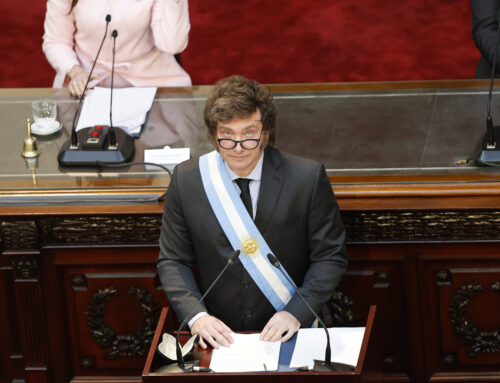The Argentine Executive Branch has officially sent the details of its agreement with the International Monetary Fund (IMF) to Congress. This initiative aims to settle existing debt with the Central Bank, marking a key step toward economic stabilization.
Key Aspects of the Agreement
✔️ The agreement involves a public credit operation, allowing the National Treasury to cancel debt with the Central Bank, leading to a net reduction in public debt.
✔️ Strengthening the Central Bank’s balance sheet is a critical step toward monetary and financial stability, helping drive disinflation and currency liberalization.
✔️ The government expects urgent congressional support via a Decree of Necessity and Urgency (DNU), rather than a traditional legislative process.
Legislative Strategy and IMF Conditions
📌 The DNU will be reviewed by a bicameral commission before being forwarded to both chambers. Unless both reject it, the decree will hold the force of law.
📌 Finance Minister Luis Caputo confirmed the agreement will be finalized by the end of the first quarter of the year, emphasizing it will not increase Argentina’s gross debt.
📌 The IMF stated that Argentina must meet certain national legal requirements before the Executive Board approves the program.
Impact on Argentina’s Economic Policy
The agreement aligns with Milei’s economic strategy, reinforcing Argentina’s commitment to fiscal responsibility and structural reforms. It also serves as a crucial step in lifting currency controls, a long-awaited move to restore investor confidence.







Leave A Comment